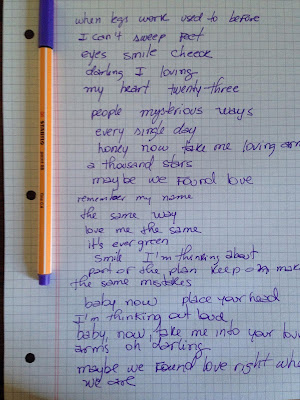When we learn a new language the most important thing to learn is vocabulary! You can argue that grammar is very important, too, but if you know lots of grammar and don't know many words, you won't be able to express yourself.
In order to help you expand your vocabulary, today I am going to teach how to build vocabulary lists.
The first thing you should do is get a notepad, a small one that you can take it with you anywhere you go. Rule number one of having vocabulary lists is that you have to review the lists over and over again, otherwise you won't learn the words, so you must have your notepad at hand to be able to study anytime, anywhere. (you can use your cell phone if you don't want to carry a notebook)
The second thing you should do is think about why you are learning the language. Is it because of your work, because of a trip, because of an exam or just because you like the language?
This information is going to help you choose the topics of your lists. Say you are learning the language because you work with logistics and you need to speak the language at work. Then, you should make lists of words that are related to logistics, such as "talking to a supplier about an order", "giving a presentation"... you know what you need, so you are the best person to organize your lists.
You can organize your list in adjectives, verbs, nouns, adverbs, but try to be more specific, for example, verbs used to talk about routine, adjectives used to describe feelings…
Each list shouldn't have more than 10 words. If a list is too long, you might have a hard time learning them.
Third, once your list is ready you have to organize your schedule to study it. The day you make it, spend a few minutes studying their pronunciations and meanings, also write sentences with each word. (Clicking here, you can access an online dictionary, choose the language you are learning, check the meaning of the words and also listen to their pronunciations.)
Set up an alarm on your phone for you to review the words one week later. This time, create new sentences and read them out loud. Set up a new alarm to review them one month later. Check if you still remember them. If not, set up a new alarm to review them next week. If you do, excellent work, they will be a part of your active vocabulary!
If you are an upper-intermediate or advanced student, read articles about topics you know nothing about and create lists with the new words you learn from those articles. When you reach this level, your goal is to be able to talk about anything in the language you are learning, not just the things you know and like.
Hope this tip is useful and it helps you acquire new vocabulary!




